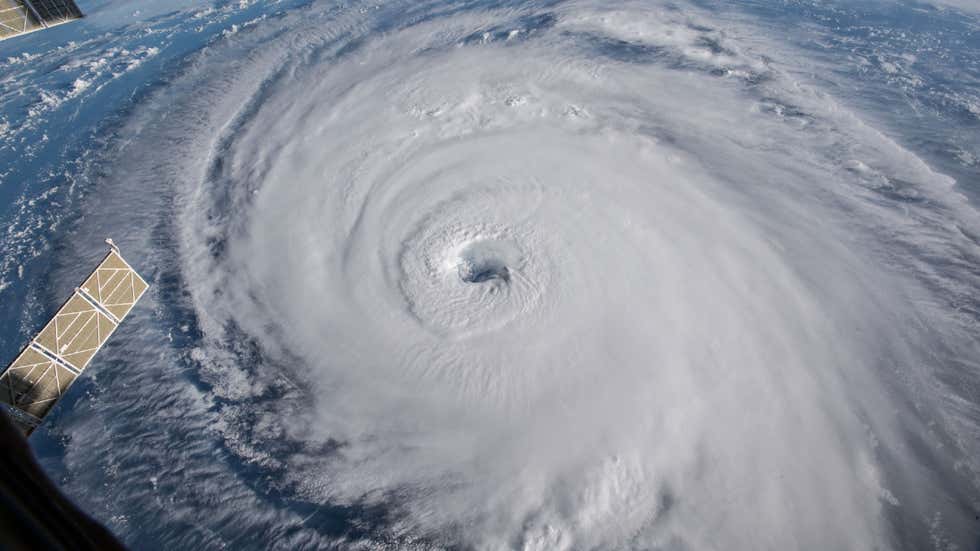Hurricane Season Is Here, Here’s How To Be Prepared


Photo Source: The Weather Channel
Each year hurricane season begins on June 1st and lasts 5 months, with storms typically peaking in August and September. As with every hurricane season regardless of the forecast, knowing the essentials of how to prepare could truly be a lifesaver.
Hurricane Knowledge
First, know your hurricane facts and understand common terms used during hurricane forecasts. Storm conditions can vary on the intensity, size, and even the angle at which the tropical cyclone approaches your area, so it is vital you understand what the forecasters and news reporters are telling you.
Tropical Depressions are cyclones with winds of 38 mph. Tropical Storms vary in wind speeds from 39-73 mph while Hurricanes have winds 74 mph and greater. Typically the upper right quadrant of the storm (the center wrapping around the eye) is the most intense portion of the storm. The greatest threats are damaging winds, storm surge, and flooding. This is in part why Hurricane Katrina was so catastrophic when bringing up to 28-foot storm surges onto the Louisiana and Mississippi coastlines.
Here are some important terms you may hear:
- Tropical Storm Watch: Tropical storm conditions are possible in the area.
- Hurricane Watch: Hurricane conditions are possible in the area.
Watches are issued 48 hours in advance of the anticipated onset of tropical storm-force winds. - Tropical Storm Warning: Tropical storm conditions are expected in the area.
- Hurricane Warning: Hurricane conditions are expected in the area.
Warnings are issued 36 hours in advance of tropical storm-force winds. - Eye: Clear, sometimes well-defined center of the storm with calmer conditions.
- Eye Wall: Surrounding the eye, contains some of the most severe weather of the storm with the highest wind speed and largest precipitation.
- Rain Bands: Bands coming off the cyclone that produce severe weather conditions such as heavy rain, wind, and tornadoes.
- Storm Surge: An often underestimated and deadly result of ocean water swelling as a result of a landfalling storm, and quickly flooding coastal and sometimes areas further inland.
During a watch, prepare your home and evacuation plan in case a warning is issued. During a warning, carefully follow the directions of officials, and immediately leave the area if they advise it. In the event of an Extreme Wind Warning/Advisory, which means that extreme sustained winds of 115 mph or greater are expected to begin within an hour, immediately take shelter in the interior portion of a well-built structure.
Hurricane Forecasts
Predicting a tropical cyclone’s path can be challenging; there are many global and local factors that come into play. The storm’s size and path can directly influence what sort of wind patterns guide, enhance, or hinder its growth, and vice versa! Forecasters have computers that take huge amounts of data and try to predict where the storm will go and usually can calculate 2-3 days out fairly accurately. This is where you hear the terms computer models and spaghetti models being used. Generally, the forecast track or path is given with the average consensus of these models. The National Hurricane Center has the most up-to-date information on tropical cyclone developments, forecasts and weather alerts, discussions analyzing the data and more. http://www.nhc.noaa.gov/
Hurricane Names
Hurricane names are picked randomly, then rotated and recycled every 6 years. If a hurricane was catastrophic or severely deadly and costly (i.e. Charlie, Katrina, Irene) it is officially retired since use is not appropriate and can be confusing when naming current storms. To view, the current list of tropical cyclone names click here: http://www.nhc.noaa.gov/aboutnames.shtml
Hurricane Kits
It is important to create a kit of supplies that you could take with you if you are forced to evacuate. This kit will also be useful if you are able to stay in your home, but are still affected by the storm, such as through the loss of power. One common trend seen when hurricanes are approaching is widespread panic. When this happens, people rush in large numbers to get all the supplies they think they need. However, if you prepare your kit ahead of time, you can alleviate a lot of the potential stress of a very chaotic situation. You should create your kit in a bag that you can easily take with you. Some recommended items to include are:
- Non-perishable food (enough to last at least 3 days)
- Water (enough to last at least 3 days)
- First-aid kit (include any prescription medication you may need)
- Personal hygiene items and sanitation items
- Flashlights (have extra batteries on hand)
- Battery operated radio (again, have extra batteries)
- Waterproof container with cash and important documents
- Manual can opener
- Lighter or matches
- Books, magazines, games for recreation
- Special needs items: pet supplies and baby supplies if applicable
- Cooler and ice packs
- A plan for evacuation and for if family members are separated
Securing Your Home
Know how to secure your home in the event of damaging winds, storm surge, and flooding.
- Cover all of your windows, either with hurricane shutters or wood.
- Although tape can prevent the glass from shattering everywhere, be warned that tape does not prevent the window from breaking.
- If possible, secure straps or clips to securely fasten your roof to the structure of your home.
- Make sure all trees and shrubs are trimmed and clear rain gutters.
- Reinforce your garage doors.
- Bring in all outdoor furniture, garbage cans, decorations, and anything else that is not tied down.
- If winds become strong, stay away from windows and doors and close, secure, and brace internal doors.
Power Outages
In the event a storm should leave you without power, there are a few things to consider and help you be ready and stay safe outside of your normal hurricane preparedness.
- Gas: Make sure your tank is full far in advance of an approaching storm. Most people wait until the last minute, rush to get extra gas for cars and generators, and subsequently gas stations can run out early.
- ATMs: Have extra cash on hand in the event no ATMs in your area are accessible or working.
- Cell Phones: Charge your cell phone and limit use after power is out.
- A/C: This can be the most uncomfortable side effect of losing power during a storm. Try to prevent as much light from entering and warming the house by covering up your windows on the inside. If you have a backup or battery-operated fans, don’t run them unless you are in the room. Fans create a difference in perceived temperature but do not cool the room; instead, they create a cooling effect by dispersing the heat off your skin. It is said they can actually add heat to a room just by running.
- Water: Fill the bathtub and large containers with water for washing and flushing only.
- Food: Turn your fridge temperature down and/or freeze any food or drinking water that can be frozen if you expect a power outage. Here is a guide on freezing food: Freezing and Food Safety. Have a cooler with ice packs prepared to cool your drinks and snacks after power has been out for more than 4 hours. And importantly, check out this food safety guide for when to discard your perishable food: http://www.foodsafety.gov/keep/charts/refridg_food.html
- Health/Safety: The CDC has a great guide on how to stay safe in the event of a power outage: Power Outages
Remember, any severe storm can be deadly and destructive. If you’ve survived a landfilling cyclone, you know the inconvenience and distress it can cause. One of the best tips to be prepared is knowing the cycle of a cyclone – Approach, Arrival & Aftermath. Prepare ahead of time and listen to the directions of officials for the approach. Secure your home, or find a safe shelter for its arrival, and know-how to proceed safely during the aftermath.
Source: The State of Florida
Photo Source: The Weather Channel
Recent Posts
Social Media for Older Adults: A Guide for Seniors
Social media is a helpful tool for seniors looking to stay connected with family and… Read More
The Best Exercises for Seniors
No matter your age, exercising regularly offers countless benefits. Exercise is key to a healthy… Read More
Thoughtful Gift Ideas for Assisted Living Residents
Giving a gift to a loved one in an assisted living community can brighten up… Read More
Downsizing Tips for Seniors: Helping Mom and Dad Move
Downsizing for retirement can be a big task, and many families come together to help… Read More
Senior Living Options: Homes and Apartments
Retirement isn’t one-size-fits-all, and neither are senior living options. Whether you buy or rent, want a… Read More
Tips for an Easier Transition into Assisted Living
If you’ve started to notice a decline in the mental or physical health of a… Read More

